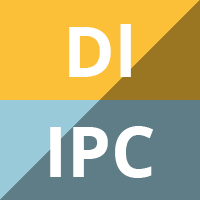
Benzodiazepines for treatment of patients with delirium excluding those who are cared for in an intensive care unit
Abstract Plain language summary The use of benzodiazepines to treat adults with delirium, excluding patients being cared for in intensive care units (ICU) Background: Delirium is a serious complication of many illnesses, which occurs most commonly in young children and older adults. It usually presents as a sudden change in a patient’s behaviour or mental […]

Interventions for preventing intensive care unit delirium in adults
Abstract Background Delirium is defined as a disturbance in attention, awareness and cognition with reduced ability to direct, focus, sustain and shift attention, and reduced orientation to the environment. Critically ill patients in the intensive care unit (ICU) frequently develop ICUdelirium. It can profoundly affect both them and their families because it is associated with […]

Intravenous versus inhalational maintenance of anaesthesia for postoperative cognitive outcomes in elderly people undergoing non‐cardiac surgery
Abstract Background The use of anaesthetics in the elderly surgical population (more than 60 years of age) is increasing. Postoperative delirium, an acute condition characterized by reduced awareness ofthe environment and a disturbance in attention, typically occurs between 24 and 72 hours after surgery and can affect up to 60% of elderly surgical patients. Postoperative […]

Cholinesterase inhibitors for the treatment of delirium in non‐ICU settings
Abstract Background Delirium is a common clinical syndrome defined as alterations in attention with an additional disturbance in cognition or perception, which develop over a short period of time and tend to fluctuate during the course of the episode. Delirium is commonly treated in hospitals or community settings and is often associated with multiple adverse […]

Processed electroencephalogram and evoked potential techniques for amelioration of postoperative delirium and cognitive dysfunction following non-cardiac and non-neurosurgical procedures in adults
Abstract Background Postoperative delirium (POD) and postoperative cognitive dysfunction (POCD) may complicate a patient’s postoperative recovery in several ways. Monitoring of processed electroencephalogram (EEG) or evoked potential (EP) indices may prevent or minimize POD and POCD, probably through optimization of anaesthetic doses. Objectives To assess whether the use of processed EEG or auditory evoked potential […]

L‐ornithine L‐aspartate for prevention and treatment of hepatic encephalopathy in people with cirrhosis
Abstract Background Hepatic encephalopathy is a common complication of cirrhosis and has high associated morbidity and mortality. The condition is classified as overt if it is clinically apparent orminimal if only evident though psychometric testing. The exact pathogenesis of this syndrome is unknown although ammonia is thought to play a key role. L‐ornithineL‐aspartate has ammonia‐lowering […]

Processed electroencephalogram and evoked potential techniques for amelioration of postoperative delirium and cognitive dysfunction following non‐cardiac and non‐neurosurgical procedures in adults
Abstract Background Postoperative delirium (POD) and postoperative cognitive dysfunction (POCD) may complicate a patient’s postoperative recovery in several ways. Monitoring of processed electroencephalogram (EEG) or evoked potential (EP) indices may prevent or minimize POD and POCD, probably through optimization of anaesthetic doses. Objectives To assess whether the use of processed EEG or auditory evoked potential […]

Pharmacological interventions for clozapine-induced sinus tachycardia
Abstract Background Clozapine is an efficacious treatment for treatment-resistant schizophrenia; however its use can be limited by side effect intolerability. Sinus tachycardia is a common adverse event associated with clozapine treatment. Various pharmacological treatments are used to control heart rate increase due to clozapine use and can include a decreased rate of clozapine titration, a […]

Interventions for preventing delirium in hospitalised non-ICU patients
Abstract Background Delirium is a common mental disorder, which is distressing and has serious adverse outcomes in hospitalised patients. Prevention of delirium is desirable from the perspective of patients and carers, and healthcare providers. It is currently unclear, however, whether interventions for preventing delirium are effective. Objectives To assess the effectiveness of interventions for preventing […]

Interventions for preventing delirium in older people in institutional long-term care
Abstract Background Delirium is a common and distressing complication of a range of stressor events including infection, new medications and environment change that is often experienced by older people with frailty and dementia. Older people living in institutional long-term care (LTC) are at high risk of delirium, which increases the risk of admission to hospital, […]

